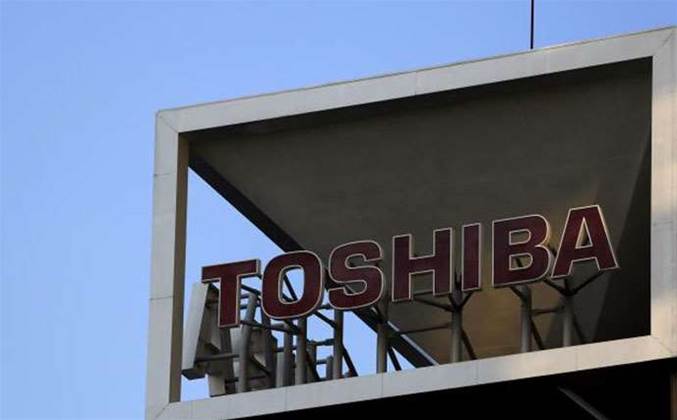Toshiba announced a A$7.7 billion asset sale and a big investment in its chip business today but saw its shares slide on a report that US authorities were investigating accounting related to its Westinghouse nuclear power unit.

The electronics conglomerate has been eager to put last year's US$1.3 billion (A$1.7bn) accounting scandal behind it and move on with streamlining its bloated businesses, whose poor performances have been masked by years of false bookkeeping.
Toshiba CEO Masashi Muromachi, who has already announced more than 10,000 jobs cuts, is due to unveil a new business strategy today. But he is now likely to spend much of his time fielding questions about the fallout from its accounting woes.
US authorities are opening a case on Toshiba even though the company had already been investigated in Japan, and could exert jurisdiction because the case involved US-based Westinghouse, according to Bloomberg.
The US Justice Department and Securities Exchange Commission were looking into the possibility of fraud, it added.
Toshiba said it was checking the report.
The report, which sent Toshiba's shares tumbling 8 percent, comes on the heels of the company's statement this week that it had made seven additional accounting errors that were previously unknown.
Even the sale of its medical equipment unit to imaging firm Canon, which Toshiba hopes will provide it with the necessary funds for restructuring, has not come without controversy.
To complete the sale, Toshiba has transferred the unit, which makes diagnostic equipment and is the world's second-biggest manufacturer of CT scan machines, to a special purpose company.
The move is unusual but could allow it to book the proceeds of the sale in the current business year even if scrutiny from anti-competition watchdogs drags on, said Yukihiko Shimada, an analyst at SMBC Nikko Securities.
Rival bidder Fujifilm issued a statement complaining that the way in which Toshiba handled the sale had made a mockery of anti-monopoly laws, although it declined to comment on whether it would be taking legal action.
Toshiba had no comment on Fujifilm's statement.
Funds from the deal will help enable Toshiba to drop plans to seek about US$1.8 billion in additional loans from its banks, sources familiar with the situation said.
Toshiba wants fresh funds to focus its resources on its pillar businesses - semiconductors and nuclear power.
In an effort to stay competitive in the flash memory market, it unveiled plans today to invest ¥360 billion ($A4.2 billion) over three years to build a new semiconductor facility in Japan.
It also said that it had agreed to sell its white goods business, which had revenue of ¥225 billion in the past financial year, to China's Midea Group. Terms of the deal are still being finalised.


_(28).jpg&h=140&w=231&c=1&s=0)






_(26).jpg&w=100&c=1&s=0)

 iTnews Executive Retreat - Security Leaders Edition
iTnews Executive Retreat - Security Leaders Edition












_(1).jpg&h=140&w=231&c=1&s=0)



